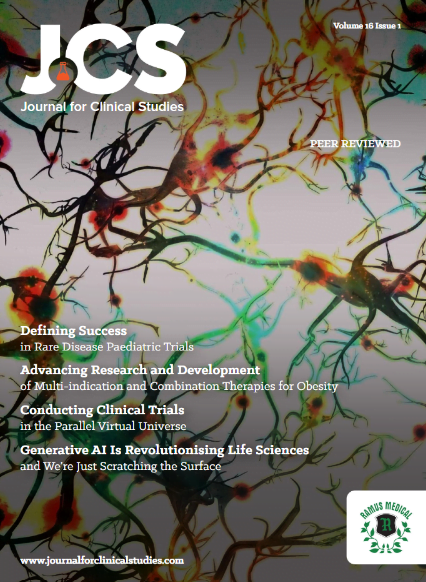
Over a quarter of a million clinical trials are currently registered on clinicaltrials.gov. It’s no wonder that society has high hopes for the next cure for cancer, a breakthrough in Alzheimer’s disease treatment, and more effective prevention of common conditions such as strokes.
Despite wide agreement that the timely registration and reporting of clinical trials are necessary to ensure transparency of and accountability for the ethical conduct of consent-driven research, few clinical trials are registered in a timely fashion and even fewer report results. When clinical trials are not prospectively registered, it is difficult to track protocol amendments and statistical analysis decisions that often adjust as the research unfolds. In addition, with only 13 percent of clinical trials reporting results within the mandated 12-month window, the ethical obligation of timely public reporting of results remains unfulfilled for the vast majority of studies.
If clinical trials are the backbone of our system for developing new approaches to prevent and treat disease, transparency and trust are the lungs. A vibrant system is impossible without a new social contract among all the stakeholders, especially clinical researchers, patients, and primary care physicians.
At FasterCures, a center of the Milken Institute devoted to saving lives by saving time in the R&D process, we envision a future in which both individuals and the healthcare system at large are responsible for pushing beneficial medical innovations forward. We call this new social contract health citizenship, which includes a set of implied rights and responsibilities for all parties.
Three fundamental truths underpin our efforts:
- The path to better health and the advancement of science begin and end with engaged patients.
- The biomedical research enterprise lives all around us — in clinical trials, the data in our wearables, electronic health records, and data used for payment.
- The stakeholders that fuel advancement — clinicians, academia, government, the private sector, and investors — must create a system focused on speeding medical research and ensuring that patients have appropriate access to treatments.
To find tomorrow’s cures, treatments, and prevention measures, every aspect of society needs to get involved. Health citizenship recognizes that the future of innovative research and development depends on both patients and the formal healthcare system stepping up to the plate.
Moving Toward A Culture Of Transparency
Increasing clinical trials registration and posting of research results are steps in the direction of transparency. Access to information about clinical trials — enrollment criteria, endpoints, locations, and results — is critical to empowering patients, their families, and primary care physicians. Also, transparency has a cascading impact on the cost and speed of scientific discovery, through ensuring validation and reproducibility of results.
The conduct of “good clinical practice” is much more than a well-designed study, and aspects such as clinical trial registration and reporting of results can be an under-resourced activity viewed as outside the funding model for clinical research. In addition, the reporting of research results should meet a few goals: transparency to patients who participated in the studies, utility to researchers to reduce duplication and enhance reproducibility, and access to negative results that are unlikely to end up in peer-reviewed journals.
Transparency isn’t just good for science or the right thing to do; it also fosters trust among individuals who would consider participating in research. Participants in clinical trials do not want to learn about clinical trial results in studies they contributed to by reading the newspaper. With clinical trial participation in cancer research at 3 to 5 percent, ensuring research is conducted in a transparent manner that builds trust can only help, not hurt, low study accrual rates.
When patients become true partners in research, these gaps in communication will be less frequent — a rare case rather than the norm. Pressing the issues of transparency even further, some patients are requesting access to clinical trial data results, such as biomarker and genetic test results, before the primary research is concluded.
Changing the social contract to tilt toward greater transparency will certainly challenge comfort levels and raise novel questions, but we cannot afford to continue with the status quo of low clinical trial participation, prolonged accrual times, and limited diversity of patient populations that participate in clinical research.
Encouraging Data Sharing
Data is the currency of biomedical research, and now patients are poised to contribute more of it than ever. In fact, many patients who participate in clinical research expect that their data will be shared and want to be partners, not just participants, in how data is used to advance the science and clinical practice that impact their disease or condition.
Engaging more patients in data sharing is only one part of what is needed to advance a data-sharing ecosystem. The National Academies of Science, Engineering, and Medicine (formerly the Institute of Medicine) conducted a consensus study that details the challenges to clinical trial data sharing. Out of that study spun a new data-sharing platform, Vivli, which will publicly launch this year. The New England Journal of Medicine took an important step toward demonstrating the value of sharing clinical trial data through its SPRINT Data Challenge, where it opened up a data set and supported projects that sought to derive new insights from the existing data. Examples like these will go a long way toward demonstrating the value of data sharing to advancing science, academic careers, and, most importantly, patient health.
As the technology to share clinical trial data improves, it will become less of an impediment than aligning incentives. The academic environment incentivizes researchers through first author and top-tier journal publications, which contribute to investigators holding on to clinical trial data. A recent publication suggests a way to ensure academic credit, through publication credit, for sharing data sets and allows investigators to tag data sets with unique IDs.
While this effort could assist in incentivizing data sharing, we see the value of tagging data sets as a way to rapidly gather examples of the value of data sharing, including what types of data sets are taken up for analysis and what types of analyses or actions are most valuable. This type of information is currently missing, and, without the value proposition, it is difficult to encourage data sharing behavior.
The value of clinical trial data will need to be collectively reexamined through embracing the sharing of data both across clinical trials and combined with other types of data. Similar to the airline and car manufacturing industries sharing data in support of public safety, as more evidence is gathered to support the impact of clinical trial data sharing and as the technology is developed to do this safely and securely, the incentives, resources, and equity issues will need to be addressed collectively.
Realizing A Sense Of Urgency
Well-conducted science takes time. The rigorous enterprise of study design and execution is extremely complex and important to get right from the start.
Also, it often takes multiple studies to accumulate the evidence needed to drive changes in policy and practice. Balance this against the urgency felt by patients and their loved ones in cases where there are limited or nonexistent treatment options, and we see why a new way of conducting clinical trial research is needed.
So how do we square these tensions? First, we recognize that change is needed. There is an increased emphasis on undue burdens associated with clinical research, whether that be the burdens of participation felt by patients and their loved ones, the burden of regulations associated with the medical product approval process, or burdens felt by physicians as they participate in the scale-up of electronic health records. No one is embracing more paperwork or additional layers of process and procedure. Each party wants to get on doing what it does best in the complex web of clinical research.
Where else has a sense of urgency and need for disruption come together to create something truly novel — the internet, the moon landing? We are not the only ones seeing this opportunity, as technology companies are disrupting the clinical research paradigm through crowdsourcing research questions and study designs and using technology to collect data without participants needing to visit a clinical research site. One example of disruption is the Good Pharma Scorecard, which ranks companies and new medicines on their clinical trial transparency and data-sharing performance. This kind of benchmarking tool helps set expectations and accountability and builds a culture of transparency for the field.
We are in the early days of the disruption that clinical research will face over the next 10 years, driven in large part by a sense of urgency and dissatisfaction with the status quo. At FasterCures, we recognize this moment as an opportunity to widen the citizenry that has a voice in research, whether that be through increasing participation in studies, making clinical trial data available for even more insights to be gleaned, or harnessing technology to streamline clinical trial conduct for physicians, patients, regulators, and researchers.
Health citizenship is about advancing health because it is a goal that we all share, and we know that this effort is as much for the good of individuals as it is for society. There are no sidelines to sit on; there is only the movement forward.















